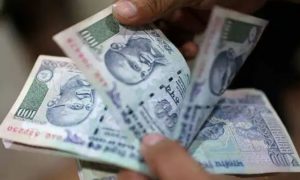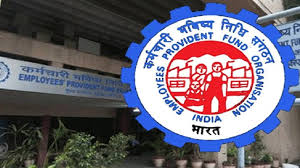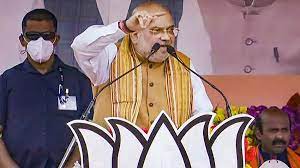Page Contents
- Higher exemption limit in tax slabs:
- Exemption from payment of Advance Tax –
- Higher deduction on interest income u/s 80TTB–
- No Tax Deduction at Source (TDS) by filing form 15H-
- Additional Deduction u/s 80D (Medical benefits)
- Additional Deduction u/s 80DDB for specified diseases:
- Relief from Scrutiny of IT-Returns-
- Offline ITR Filing
Senior citizens in every country are given special treatment in various forms.
In India senior citizens are given concession in train tickets, medical expenses cost etc. Similarly senior citizen are given special benefits under Income Tax Act as well.
In this article we will understand meaning of senior citizen and various benefits available to senior citizens under Income Tax Act 1961.
Meaning of Senior Citizen:
As per Income Tax Act 1961, an individual is treated as senior citizen once he attains the age of 60 years or more and he will be treated as super senior citizen once he attains the age of 80 years or more.
It may be noted that an individual will be treated as senior citizen or super senior citizen for a financial year even if he attains the age of 60 or 80 years on the last date of such financial year.
For example: Mr X was born on 30.03.1960. Then he will be treated as senior citizen for the first time in FY 2019-20 since he has completed his 60 years within the FY 2019-20.
Following are the various benefits available to resident senior citizen. Non-resident senior citizens tax benefits are at par with normal individuals.
Higher exemption limit in tax slabs:
For FY 2019-20, income tax exemption limit for senior citizen (i.e => 60 years , < 80 years) is Rs 3,00,000, whereas the same for normal individual is Rs 2,50,000. The basic exemption limit for super senior citizen (i.e => 80 years) is Rs 5,00,000. So senior citizen enjoys higher basic exemption of Rs 50,000 and super senior citizen enjoys higher basic exemption of Rs 2,50,000 in comparison to normal individuals.
It may be noted that above higher exemption limit is given only to resident senior citizen and not to non-resident senior citizens.
Exemption from payment of Advance Tax –
Resident Senior citizens who don’t have business Income are exempted from payment of Advance tax. Hence interest u/s 234B (for non-payment of Advance Tax) and u/s 234C (for non-payment of periodic installments) are not applicable. However Interest u/s 234A (for non-filing of return within due date) continues.
Again such exemption is not available to non-resident senior citizens and hence they will have to pay interest u/s 234B and 234C based on their tax liability and advance payment dates.
Higher deduction on interest income u/s 80TTB–
w.e.f FY 2018-19, in case of Resident senior citizen deduction of Rs 50,000 is allowed on account of interest Income (i.e interest on saving bank, bank deposits, post office deposit and co-operative society deposit).
However the same is limited to Rs 10,000 u/s 80TTA (from FY 2012-13) to other Individual and HUF (including non-resident) for saving account interest only.
For Non-resident individuals (be normal individual or senior citizen) the above deduction is limited to Rs 10,000 u/s 80TTA.
Hence resident senior citizen is allowed an additional deduction on interest to the tune of Rs 40,000.
No Tax Deduction at Source (TDS) by filing form 15H-
In order to avoid the waiting time for refund of Income Tax, a resident senior citizen can submit form 15H for non-deduction of TDS to deductor of tax (and not to Income Tax Department) if the income of the person does not exceed maximum amount not chargeable to tax (For FY 19-20 Rs 3 lacs for senior citizen in age bracket of 60-80).
Normal individuals can also file form 15G for non-deduction of TDS on specified income (Provided his total income does not exceed maximum amount not chargeable to tax).
However the benefit of filing 15G/15H remains the same (i.e it helps to avoid the need for filing income tax refund claim).
For 15G/15H can be submitted for non-deduction of TDS on following income:
1. Interest Income from banks and financial institution
2. Rental income on property let out for commercial purposes (w.e.f 01.04.2019)
3. Insurance commission (w.e.f 01.06.2017)
It may be noted that filing of form 15G/15H does not make income tax free. If an individual has filed for 15G/15H erroneously (i.e his total income exceeds the maximum amount not chargeable to tax), then he will have to pay tax at the time of filing his return along with applicable interest.
Additional Deduction u/s 80D (Medical benefits)
Considering the higher medical cost at old age, higher exemption u/s 80D has been provided for senior citizens and super senior citizens.
This can be tabulated below:
From Financial year 2018-19 the deduction u/s 80D depends upon whether mediclaim policy is taken or not:
| Medical insurance Status | Deduction for | Age Below 60 year | Age 60 years or above |
| Medical insurance Taken | For Family members | 25,000 | 50,000 |
| For Parents | 25,000 | 50,000 | |
| Medical Insurance not taken, however medical expenditure incurred | For Family members | – | 50,000 |
| For Parents | – | 50,000 |
From the above table it is clear that if a senior citizen has taken health insurance then deduction of premium paid upto Rs 50,000 is available.
However in case medical insurance is not taken by senior citizen then also he can claim deduction for medical expenditure incurred subject to limit of Rs 50,000. This is a very welcome change via Finance Act 2018 since in India people are not very keen on taking medical insurance and beyond a certain age either medical insurance are not available or very costly.
Additional Deduction u/s 80DDB for specified diseases:
U/s 80DDB deduction is allowed to Resident individual and HUF for medical treatment of specified diseases (like Cancer, AIDS etc) of self and dependent family members.
From FY 2018-19 the amount of deduction is as below:
For Individual below 60 years of age = Rs 40,000 or actual expenditure incurred whichever is lower
For resident senior citizen (either the assesse or his family member is senior citizen)= Rs 1,00,000 or actual expenditure incurred whichever is lower.
Hence in case of senior citizen an additional deduction of Rs 60,000 is available u/s 80DDB.
Relief from Scrutiny of IT-Returns-
As per press release of Central Board of Direct Taxes(CBDT) No.402/92/2006-MC (07 of 2011) , One more very important benefit available for senior citizens is that there is no regular scrutiny for them, except for exceptional cases. In order to reduce the hardships for senior citizens, it was decided by CBDT that cases of senior citizens and small taxpayers, filing income-tax returns in ITR-1 and ITR-2 will be subjected to scrutiny only where the Income Tax department is in possession of credible information.
Though the above press release was referring to FY 2011-12, however due importance is expected to be given for this press release before selection of cases for scrutiny of IT Returns.
Offline ITR Filing
E-filings of ITR forms are not mandatory for Super Senior Citizens (i.e age 80 years or above) and they can file paper returns provided they do not have regular business or profession income.





































